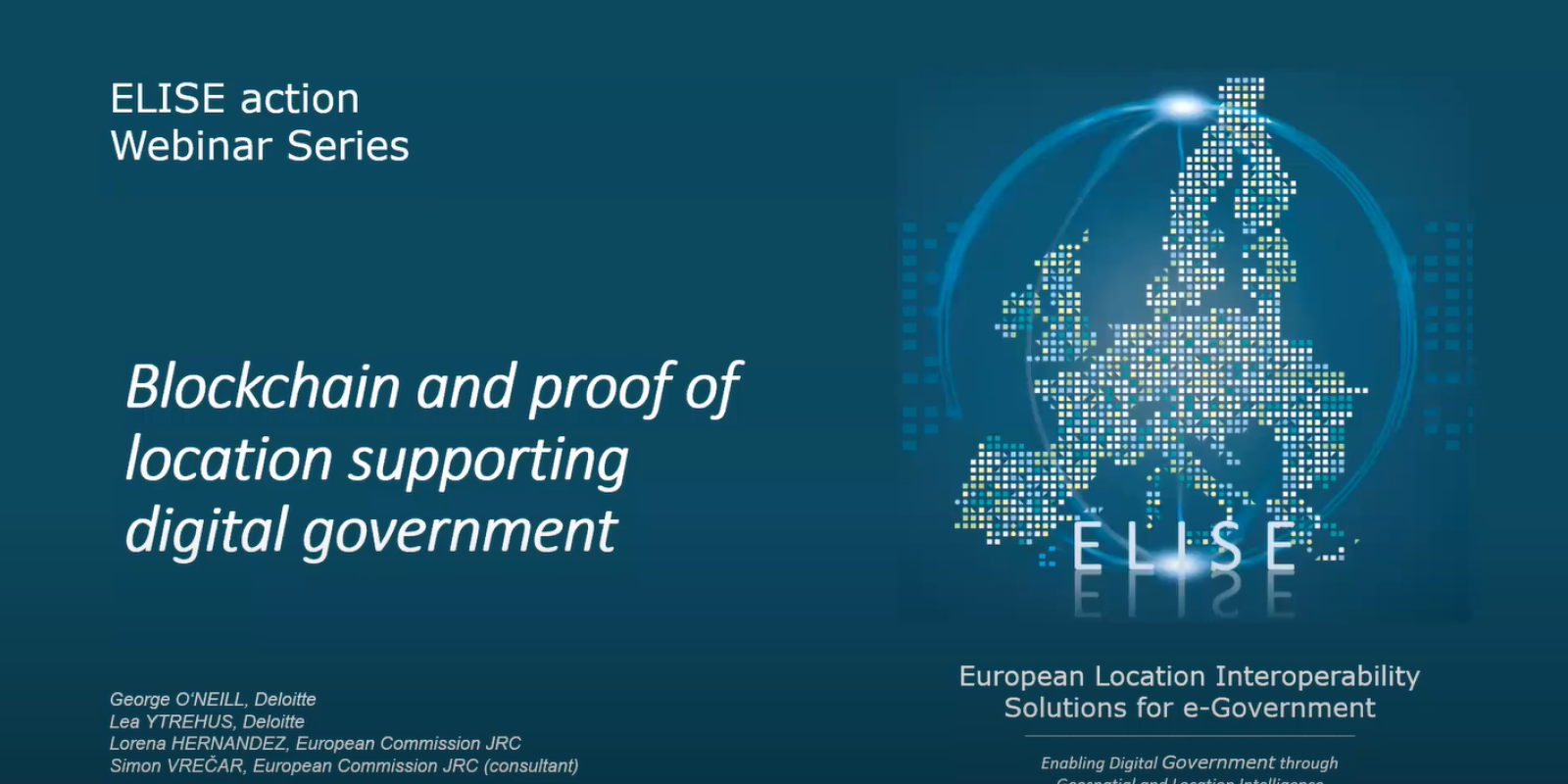Blockchain and proof of location supporting digital government


How blockchain can enhance location and location-enabled services?
Blockchain is an exciting and much-talked about technology. Beyond its best-known application to cryptocurrency, it offers a range of possibilities.
This webinar will deep dive into how blockchain technology can support location-enabled public services and digital government. Two aspects are of particular interest in this regard.
- Firstly, the use of blockchain to support decentralised and privacy-friendly “proof of location” services attesting to someone or something’s presence at a certain geographic location, at a certain time.
- Secondly, smart contracts (agreements between two entities in the form of computer code that runs on the blockchain), can provide increased certainty and transparency, and automation in transactional public services and beyond.
As part of this webinar, we will explore how these technologies and concepts can transform and enhance location and location-enabled services.

Source: Deloitte (2021)
In this webinar, George O’Neill and Lea Ytrehus from Deloitte, along with guest speakers Katya Zavyalova and Ryan King from FOAM, will present the current state of play of blockchain in the field of location and provide information on some state-of-the art solutions.
This webinar will provide the audience with insights on:
- Definitions, background and contexts for blockchain in the location domain;
- EU policy context related to the uptake of blockchain for public services;
- Definitions and significance of proof of location for public services;
- Smart contracts and their potential to increase certainty and transparency in the public sector;
- Use cases providing examples of state-of-the art blockchain solutions in the location domain and beyond;
- Key takeaway messages and conclusions.
Should you have any questions or interests concerning this topic, there will be an opportunity to participate in a Q&A session at the end of the webinar.




